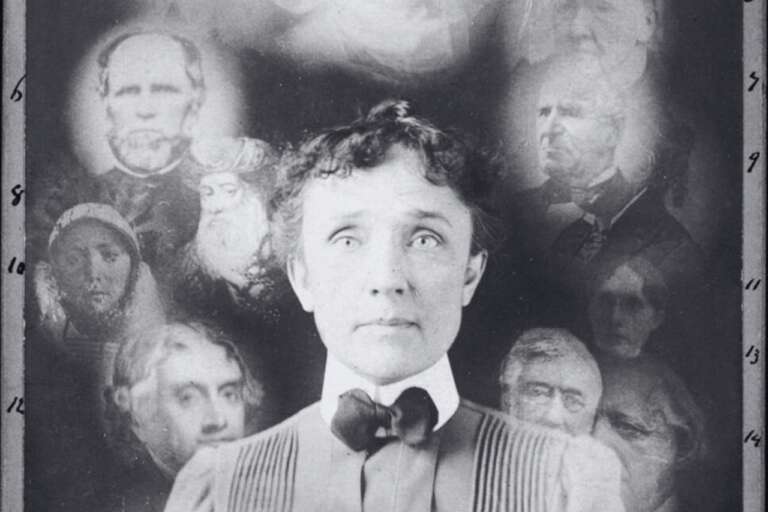Have you ever felt a mysterious connection to the unseen, a sense that there’s more to our world than meets the eye? If so, you’re not alone.
Many seekers turn to mediumship to bridge the gap between our realm and the ethereal, seeking messages from the spirit world.
But there’s a crucial element that often remains hidden in the shadows, guiding every meaningful connection—ethics. This is where spirituality meets ethics!
In this blog post, we’ll delve into the heart of mediumship, where spirituality meets ethics. We will explore how ethical principles shape the very essence of mediumship, and why they are the key to instilling trust and respect among mediums and helping our community grow.
What is the Mediumship Code Of Ethics?
A Mediumship Code of Ethics is a set of principles and guidelines that govern the practice of mediumship. It outlines the ethical standards and responsibilities that mediums, should adhere to when connecting with the spirit world, conveying messages, and providing guidance.
This code serves as a moral compass, ensuring that mediums maintain honesty, integrity, and respect in their interactions with clients and the public.
It provides a framework for ethical conduct and professional behavior in the field of mediumship, emphasizing transparency, confidentiality, and a commitment to the highest standards of service.
So, lets dive in and learn more about the Mediums Code of Conduct
I. The Foundation of Ethical Mediumship: Upholding the Code of Ethics
1. Maintain the highest standards of competence and professional conduct:
The Mediumship Code of Ethics and Professional Conduct begins with personal commitment. Practitioners must continually strive for excellence in their abilities and conduct themselves with the utmost professionalism. This commitment not only enhances the practitioner’s credibility but also ensures the quality of service they provide.
2. Work with integrity and honesty at all times:
Honesty is the cornerstone of the Code of Conduct for ethical mediumship. Mediums should be transparent and truthful in their interactions with clients. Fabrication, exaggeration, or manipulation have no place in this practice, as they can undermine the trust that clients place in their medium.
3. Work within applicable law at all times:
Mediums should always operate within the boundaries of the law, respecting both the legal Code of Conduct and ethical principles. Understanding and adhering to legal requirements, such as consent and privacy laws, is crucial to protect both clients and practitioners.
II. Responsibilities to Clients and the Public: Adherence to the Code of Ethics
4. Act in the best interests of your clients:
A paramount duty of mediums is to serve the best interests of their clients. This means providing guidance, messages, and healing that genuinely help and support individuals on their spiritual journey, following the Code of Ethics.
5. Act in a manner which promotes and encourages Spiritualism and quality mediumship:
Mediums have a role in promoting the broader understanding of spiritualism and quality mediumship. By conducting themselves with professionalism and ethical integrity, they contribute to the positive reputation of the mediumship community, in line with the Code of Conduct.
6. Remember the responsibility that comes with mediumship and take full responsibility for your words and actions:
Mediums should recognize the weight of their responsibilities under the Code of Ethics. They must be mindful of the potential impact of their messages and actions on clients’ lives and well-being.
III. Boundaries and Respect: Adherence to the Code of Ethics
7. Treat clients and members of the public with respect and courtesy:
Respect for clients and the public is non-negotiable. Mediums should demonstrate respect and courtesy in all interactions, regardless of beliefs or backgrounds, following the principles of the Code of Conduct.
8. Respect others’ beliefs, creeds, and philosophy:
Mediums must embrace a non-judgmental stance. Regardless of personal beliefs, mediums should approach every client with impartiality and respect for their individual beliefs, creeds, and philosophy, as stated in the Code of Ethics.
IV. Confidentiality and Consent: Ethical Practice by the Code of Conduct
9. Treat all information received during a demonstration or sitting as strictly confidential:
Confidentiality is a sacred trust and a central tenet of the Code of Ethics and Professional Conduct. Mediums should never disclose information shared by clients during sessions unless explicit permission is granted by the client or there is a genuine and imminent threat that can only be diffused by breaching confidentiality.
10. Explain to the sitter or audience what to expect before a private sitting or demonstration:
Transparency is key to professional conduct. Mediums should clearly communicate what clients can expect during private sittings or demonstrations, ensuring they are comfortable with the process and potential outcomes, adhering to the Code of Conduct.
V. Responsibility and Professionalism: Upholding the Code of Ethics
11. Maintain appropriate insurance for your work:
Practicing mediumship professionally requires adequate insurance coverage, a key aspect of professional conduct. This ensures protection for both the practitioner and the client in case of unforeseen circumstances.
12. Be mindful of ethical boundaries:
Mediums should never cross ethical boundaries by making false, misleading, or unsubstantiated claims. They must also refrain from using their mediumship for personal gain or to take advantage of vulnerable individuals, aligning with the principles of professional conduct.
VI. Evoking Spiritual Principles: Embracing the Code of Ethics and Professional Conduct
Mediums should align with the Spiritualists National Union’s (SNU) Seven Principles, which provide a deeper understanding of the spiritual intent behind mediumship and the Code of Ethics.
13. Embrace the 7 Spiritualist Principles:
These principles include the Fatherhood of God, the Brotherhood of Man, the Communion of Spirit, the Continuous Existence of the Soul, Personal Responsibility, Compensation and Retribution Hereafter, and Eternal Progress.
Below I have summarised my personal interpretation of the 7 Spiritual Principles:
- Knowing God or consciousness as the Creator: Recognizing a powerful force in the universe that creates everything, including us, and thinking of this force as God, like our Father.
- We’re All Family: Understanding that since we all come from the same source of life, we’re like one big family. This means we should help and support each other, giving and taking in a balanced way.
- Talking to Spirits and Angels: Proving that life continues after death by talking to people who have passed away. Spiritualist places where this happens also have special beings, like guardian angels, who want to help us.
- Our Spirits Live On: Believing that our spirit, which is like our inner energy, can’t be destroyed. When our body dies, our spirit lives on in another world that’s like ours but different. We stay the same, and we can get better by trying.
- Our Choices Matter: Knowing that we’re responsible for our thoughts and actions. Nobody else can change our spiritual growth unless we let them. We can choose to do what’s right or wrong for our spirit.
- Karma or Cause and Effect: Recognizing that when we connect with our inner divine nature, we naturally act in a positive way, leading to a fulfilling and meaningful life. Conversely, when we deviate from our inner divine essence, we disrupt the natural flow of life and may experience suffering, affecting not only ourselves but also those around us. This principle applies to our present life, not just the afterlife.
- There is always Room to Grow: Realizing that we all want to get better and smarter. We can do it, and how fast we get better depends on how much we want it. Our spirit is a part of us forever, and we can improve whenever we decide to.
Should you wish to read the 7 principles for your self, visit the SNU’s Website.
Conclusion:
The Mediumship Code of Ethics and Professional Conduct serves as a guiding light for both aspiring and experienced mediums. Upholding these ethical principles is not only a responsibility but also a commitment to maintaining the sacredness and trustworthiness of mediumship.
By adhering to these guidelines, mediums can continue to provide valuable guidance, healing, and support to those in need, ultimately strengthening the bond between the physical and spiritual worlds.
In the journey of mediumship, let ethical integrity be our compass, and may we always endeavor to bring light, love, and healing to those we serve, in accordance with the Code of Ethics and Professional Conduct.






